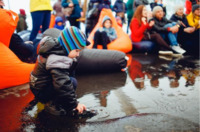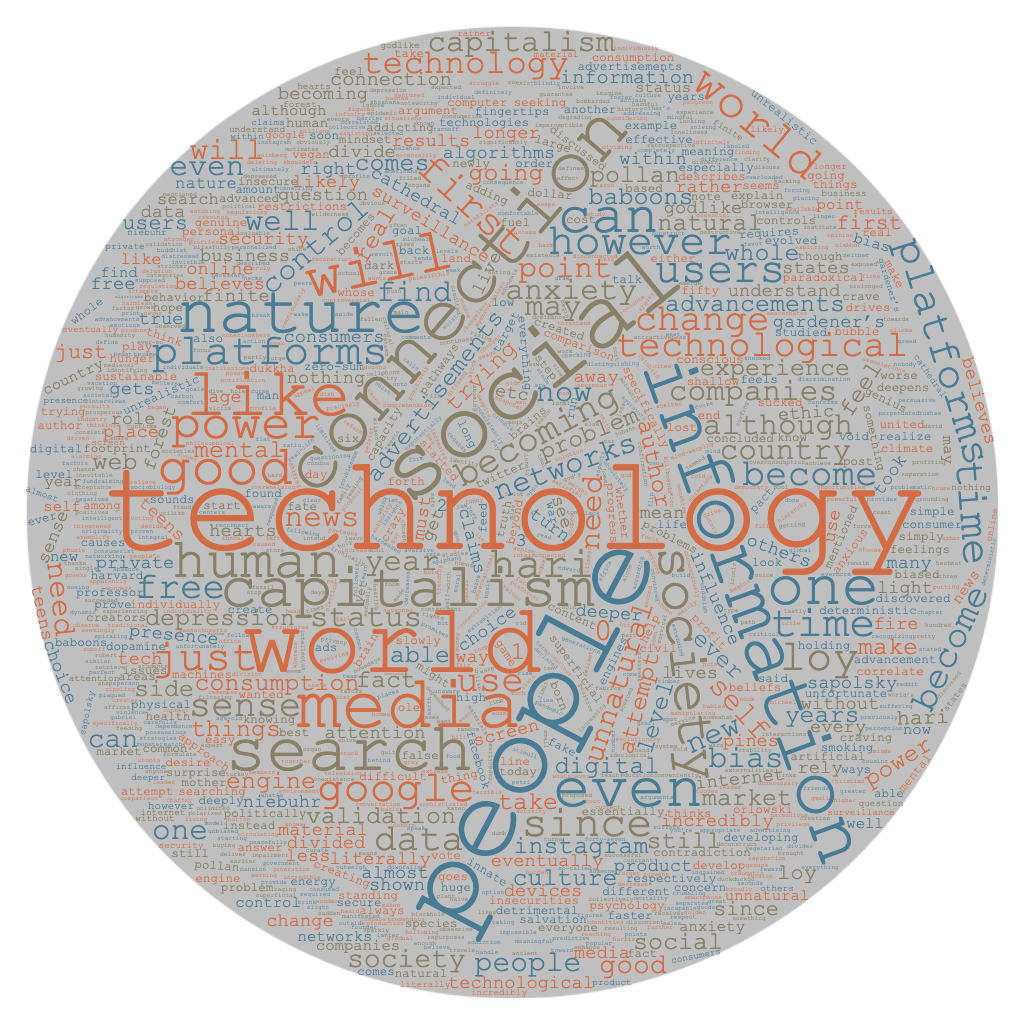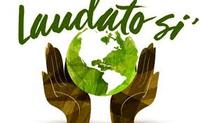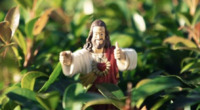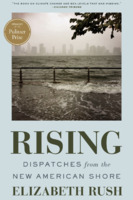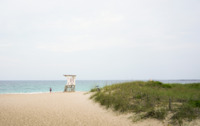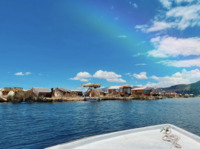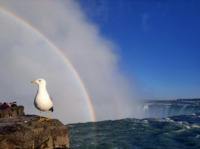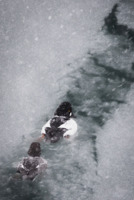Search
109 items
-
A Hymn for Hurrican Relief
This article was written to showcase the hymn that was a tribute to prayers for the damage from the recent severe storms in Texas, Louisiana, Nepal, India, Bangladesh, the Caribbean, Florida, Georgia, and South Carolina. In addition to comforting those impacted by the storms, the hymn also serves as a message for government leaders to work for policies that help to counter climate change. -
6 Ways to Green Your Holiday
6 Ways to Green Your Holiday is a graphic made by the Sierra Club. It gives 6 easy ways make Christmas traditions more sustainable. To view the image, click below or *download* -
Creation Care Hack: Train Yourself to use Reusable Shopping Bags
Creation Care Hack: Train Yourself to use Reusable Shopping Bag is a post from Evangelical Environmental Network MOMS. The article discusses how using a reusable shopping bag is only easy if you make it a habit, which can be difficult. It then gives a few tips on how to make this sustainable practice a habit. The article also has a graphic on how plastic bags are killing the planet, which can be found below. The author finishes by saying, “If the 70% of Americans who identify as Christians practiced using less disposable plastic bags what a witness and difference that could make.” See additional attached media for an infographic (.jpg) for visual information on plastic bag use. -
Wade in the Water
Wade in the Water is a worship resource from the New Community Project. It calls for the stewardship of water and is a 20 minute worship service, including a hymn, about water as a precious resource. To read or download Wade in the Water, see below. -
12 Days of Christmas Recycling
12 Days of Christmas Recycling is an article from Evangelical Environmental Network about all the “stuff” that accumulates over Christmas. December is the highest month for landfill deposits with household waste increasing by 25% between Thanksgiving and Christmas. An average of 30 million Christmas Trees will end up in landfills and 4 million tons of wrapping paper and gift bags will be used. The article gives 12 ways to “reduce the overuse” and to move the focus of Christmas back to the birth of Jesus. -
Catholic Climate Covenant Earth Day Video
Catholic Climate Covenant has created their 2018 Earth Day video Beyond a Throwaway Culture. The focus of the video is the harm that comes from single-use disposable plastics - how it contributes to both land and marine pollution. -
Water Issues in Appalachia
Some people may think that water issues in the United States only exist in the west. This is far from the truth. In addition to algae bloom issues throughout the midwest, the Appalachian region of the United States has been experiencing severe water contamination due to mining and chemical spills for the past several years. Fortunately, the residents of this region are kept informed by the Catholic Committee of Appalachia. Once a year, residents from all over the state meet in one location to discuss the issues of their region and try to come up with solutions. -
The Sacredness of Water
This chapter from the student-written book “Emerging Perspectives on Religion and Environmental Values in America” explores the importance of water across religious traditions and modern life. It explores the importance of water for survival but also as a gift that frequently acts as a spiritual symbol. Below is the first paragraph of the chapter to introduce the discussion.
"Pick up any religious text and you are likely to find at least one reference to water. Whether it is used to cleanse, bathe, heal, restore, replenish, or purify: water is one of the most prolific symbols in major world religions, stretching through time, place, and culture. As human beings, this may come as no surprise seeing how our bodies are composed mostly of water, and we rely on it for our very survival – a truth that continues to become more resonant as the effects of climate change take hold in the forms of drought, rising temperatures, and natural disasters. Like many religious symbols, water appears in scripture, ritual and tradition through its simplicity and use in everyday life. In examining a variety of major world religions, namely Islam, Judaism, Hinduism and Christianity, connections between water as a common resource, and water as a sacred and holy gift become apparent. Drawing from these unique and similar understandings of water, we can begin to consider the spiritual motivations one might have in engaging in water conservation efforts. Furthermore, in exploring these religions specifically, we can identify some beliefs about water that may provide helpful wisdom in the face of more rational conversations surrounding water conservation. Because these religions have such strong relationships with water and large followings worldwide, there is hope that these connections between scripture and our contemporary crisis may be brought to life to move toward a more secure and just future." -
Technological Takeover or Technological Makeover?
This chapter from the student-written book “Emerging Perspectives on Religion and Environmental Values in America” explores the recent and rapid development of technology and its impact on our environmental actions. It discusses trends of consumerism, social conflict, and disconnection. Below is the first paragraph of the chapter to introduce the discussion.
"Is it just me or does it feel like the whole world is going crazy? From a global pandemic, to a civil rights revolt, to talk about election fraud, it seems like everything is spiraling out of control and technology seems to be adding fuel to the fire. It feels as if technology is the invisible hand that controls us all on every level, individually and as a culture. As technological advancements push further, the concern for the problems perpetuated by them rises as well. I am not trying to be labeled as a 'Karen' of my generation, but technology is slowly eating away at our brains and degrading the fabrics that hold our society together." -
Scripture Sunday: Invitation to the Thirsty
"Walter Bruggeman has said that the task of the prophet is 'to nurture, nourish, and evoke a consciousness and perception alternative to the consciousness and perception of the dominant culture around us.' Here in Deutero-Isaiah, the Israelites who have been exiled are given a vision of hope, Isaiah is evoking a reality far different from what they know. In the previous chapter, God says, in one of my favorite verses, 'For a brief moment I abandoned you, but with deep compassion I will bring you back. In a surge of anger I hid my face from you for a moment, but with everlasting kindness I will have compassion on you… My unfailing love for you will not be shaken nor my covenant of peace be removed' (Isaiah 54:7-10). This is the climax of the second book of Isaiah, that God’s anger towards injustice and the consequences of it are momentary, but God’s compassion, love, and faithfulness are everlasting, something we can never be separated from. Isaiah 55 then flows into the specifics of that love. God’s invitation into divine care is one that freely gives water, food, and rest." -
A Bluer Theology: Protecting and Restoring God’s Marine Creation
"Blue Theology was founded in 2008 by Rev. Dan Paul and Rev. Deborah Streeter. Streeter coined the term “Blue Theology” as a theological approach that weaves together marine biology and Christian theology. Over the next few years, the Church, only blocks from the Pacific Ocean, began hosting weeklong groups to engage in learning-serving experiences with God’s marine creation. Over the last two years, Blue Theology Outposts have opened in Newport Beach, CA, Texas City, TX, and Beaufort, NC. The mission of the Blue Theology program is to provide learning and serving experiences in ocean conservation while fostering heart connections to the sea." -
Sacred Lands, Sacred Waters: Theological Reflections on This Sacred World
"The lands and waters of this world are sacred places. We know it when we rest in them and we know it from our sacred texts. As Christians, to see the world as creation is to see the world as sacred.
This resource includes theological reflections from Karyn Bigelow, Avery Lamb, Dr. Miguel A. de la Torre, Rev. Victoria Loorz, Rev. Dan Paul, and Rev. Dr. Randy Woodley.
This resource was originally published for Season of Creation 2022." -
Laudato Si’ -- On Care For Our Common Home
Laudato Si appears to be increasing interactions between environmental professionals and faith communities, and as such, is a very important document for all people to understand–not just Catholics! Roman Catholicism is the largest religious denomination in the world (1.2 billion). An encyclical is one of the most authoritative declarations that a Pope can put forth. Laudato Si is both a reflection of the larger moral and religious landscape of environmental values, and perhaps simply the most prominent such statement of values yet crafted. It is symbolic of this moment in time when religious and ethical voices are gaining currency in environmental thinking, regardless of any particular doctrine.
-
Sustainability Photo Contest
This RESTORExchange photo contest is being brought back from the pre-COVID era, and with an added collaboration with the Sustainability Institute. It's based around the question "What does sustainability look like?" This can include sustainability in environmental justice, technology, energy, lifestyle and wellbeing, society and culture, economy and politics, and any other context where you see sustainability in action. We want to see your perspectives and show all the different places that sustainability is practiced! Winning photos will be decided by a panel of judges (yet to be determined), and the top four photos will win a prize! First place will receive $400, second place will receive $300, third place will receive $200, and an honorable mention will receive $100. Submissions will be accepted through March 15, 2023. -
Cool Congregations
"The Cool Congregations Challenge, is an annual national contest to recognize 'Cool Congregations' that are becoming energy efficient and sustainable role models within their communities. The contest is brought to you by Interfaith Power & Light, a nonprofit organization inspiring and mobilizing people of faith and conscience to take bold and just action on climate. There are no fees to enter. Application period opens November 1 each year. Deadline for entries, December 15. Get ready to enter the Challenge!
Due to Covid the project eligibility window has been expanded again for 2024. Projects completed in 2021, 2022, and 2023 will be eligible to apply. Deadline Dec 15, 2023, awards announced in February 2024.
NEW! Electric Vehicle Leader category for congregations that have encouraged EV adoption. This category includes: EVs (Congregants and Staff) • Congregational EV Charging Stations • Outreach • Educating and Advocating for EVs. (Includes all-electric vehicles, plug-in hybrids and electric bikes. If your congregation is working on reducing transportation emission through public transportation or carpooling, apply to the Community Inspiration category.)" -
Advent Simplicity Challenge
"This Advent, commit to simplicity. In a season that can mistakenly be focused on gifts and consumption, explore ways to live simply as we hopefully prepare for the coming of Jesus and the restoration of the earth. This year, we’ll be mixing in new daily challenges, as well as accompanying PDFs for folks who prefer not to use the interactive calendar." -
From the Ground Up: An Adult Outdoor Education Program
AKA Our Deen is Green! for Adults"We are happy to announce that applications are now being accepted for From the Ground Up: An Adult Outdoor Education Program (aka Our Deen is Green! for adults). This special program, funded by a grant from the National Park Service Chesapeake Gateways Office, will begin after Ramadan, in late April 2024, and continue into spring of 2025. It is a unique opportunity to become immersed in the various facets of ecology, environmental science, sustainability and stewardship. It will include monthly classes, mostly in-person and outdoors in parks and wildlife sanctuaries in DC, Maryland, and Northern Virginia, focused on specific aspects of and issues pertaining to our local region, the Chesapeake Bay Watershed.
Classes will be led by local subject matter experts and include a variety of topics, including local plants and animals, the interconnectedness of our watershed, the challenges it’s facing, and what we can do to help. Specific classes will include:
· An introduction to the Chesapeake Bay Watershed
· Local herps: reptiles and amphibians
· Monitoring stream health with benthic macroinvertebrates
· Stream restoration and invasive plant removal
· The importance of native plants and pollinator gardens
· Watershed education through an interfaith lens
· Native trees
· Soil health
· Environmental justice
· Local birds and “bugs”
· Solar power and clean energy
· Sustainable living
· Water-quality monitoring
· And more!
We are looking for 10-15 strongly committed local residents who are interested in learning about our local watershed, its needs, and what they can do to help it. Participants will be encouraged to create a long-term project or plan of action describing something they will do to support the watershed and/or encourage their families or communities to pay more attention to environmental issues.
Program participants must be able to commit to the majority of the monthly classes. All in-person classes will take place on weekends and last 2 to 4 hours. (We will do our best to help provide transportation if necessary.)
This entire program is being offered free of charge thanks to a National Park Service Chesapeake Gateways grant. The National Park Service Chesapeake Gateways Office (NPS Chesapeake Gateways) offers competitive grant opportunities to advance the Chesapeake Bay Initiative Act of 1998 within the full 41-million-acre Chesapeake Bay watershed. Chesapeake Gateways grants bring out familiar, untold, under-appreciated, or yet to be uncovered narratives and promote resilient communities & landscapes through tourism, sustainability, conservation & local economies throughout the Chesapeake Bay watershed.
The program begins after Ramadan, with the introductory class set for April 21st! Applications are due by March 8th. Access the application form below. Please reach out to us at contact@greenmuslims.org with any questions." -
Plastic Jesus: Real Faith in a Synthetic World
"Everywhere we look in our culture you will find plastic. One place where you will not find plastic, however, is in the Bible.
This resource is designed to help congregations think more deeply about the ways that plastics impact our lives and God's creation. It is also intended to equip people of faith to take actions to address this epidemic in faithful and practical ways.
Download this resource to find stories of individuals and communities making a positive impact, sermon starters to spark meaningful discussions in your church, worship resources to unite in prayer and reflection, and actionable steps to address the plastic crisis in your life, community and, our world." -
Rising: Dispatches from the New American Shore
This resource contains a series of vignettes following Elizabeth Rush as she meets people all around American who have been affected in some way by global sea rising, as well as some of her own personal experiences. She gives voice to those otherwise not heard, and shares eye opening testimonials from those who experience the effects firsthand. -
A Walk with Sustainability…and the Bolivian Llamas
"In this picture, I am working alongside two rural Bolivian community members (and a llama), collaborating on the design of a water system. The community had no running water, phone service only on hills, cut plastic liter bottles in half for gutters, and still gave me soups and meals as a welcoming and thankfulness. Their kindness, harmony with the land around them, and joy radiated, deeply resonating with my idea of how to live a sustainable, happy life. Sustainability is not buying a reusable water bottle…every 3 months because a new, better, more cool version is here. It is living in gratitude and simplicity with the people and nature around you." Taken by Megan Oleksik. Submitted to the RESTORExchange Sustainability Contest. -
Capturing the Essence of Sustainability at Halifax Public Garden
"Capturing the essence of sustainability at Halifax Public Garden. This picturesque view of the tranquil lake connects the myriad benefits of green spaces, from promoting social connections and mental well-being to enhancing physical health and fostering equity within our communities to improving water and air quality. Serving as a reminder of the crucial role green spaces play in fostering sustainable communities. By preserving and nurturing our natural environments, we not only enhance our quality of life but also safeguard the health of our planet for future generations. Let's continue to embrace and support sustainability efforts for a greener, more resilient world." Taken by Aklema Iryn. Submitted to the RESTORExchange Sustainability Photo Contest. -
Friends Enjoying the Beach During the Off Season
"Friends enjoying the beach during the off season. The sound of crashing waves creates a feeling of serenity and reminds us how important it is to protect the ocean." Taken by Hailey Irving. Submitted to the RESTORExchange Sustainability Photo Contest. -
Uros
"This photo captures a moment with Rueben, our gracious host during my stay with the Uros community on Lake Titicaca. He took us on a tour, sharing stories about his culture. The Uros, residing on the Floating Islands, have thrived on the water for over two millennia. Their unique way of life emerged from a deep understanding of the reed plants found in the lake. They discovered a species that naturally floats with its soil and roots, enabling them to construct foundations and structures in the midst of Lake Titicaca, the largest fresh water lake in South America. Initially, this innovation served as a refuge from their land enemies. Remarkably, during the Spanish invasion, the Uros survived by ferrying the Spanish across the lake, avoiding conflict. These floating islands, crafted from living reed plant architecture, epitomize the collaboration between humans and nature. The plants never would have grown in such density and formed islands without the Uros people. Rueben’s family made us amazing food. Their kids saw us as larger-sized children and played with us. Rueben emphasized how the Uros people never lived beyond their means and how it’s their generational ethos to take from nature only what they need. Today, the majority of homes on these floating islands run entirely on solar energy. Witnessing communities like theirs make conscientious choices in designing their lives for the betterment of future generations left me feeling hopeful yet unsettled, as their life stands in stark contrast with the culture of excessive consumption in the society I inhabit." Taken by Erica Hu. Submited to the RESTORExchange Sustainability Photo Contest. -
Sustainability is Beautiful
Second Place Winner of the Sustainability Photo Contest.
"I am enthusiastic person about sustainability and i have my Start-up with main focus on sustainability. I have taken this photo at Niagara falls month ago as college trip. Photo itself shows how beautiful nature is. Sustainability is balance of life and nature. As photo shows a Common gull passionately watching people and not afraid of them. Background describe beauty of nature water, rainbow and clouds." Taken by Chaitnyakumar Makwana. Submitted to the RESTORExchange Sustainability Photo Contest. -
Ice and Teeming Wildlife
"May the future have ice and teeming wildlife". Taken by Diego Norena. Submitted to the RESTORExchange Sustainability Photo Contest.

